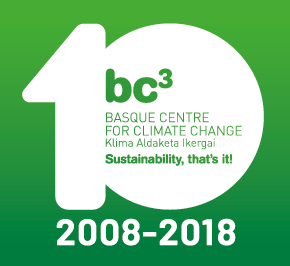Giacomo Grassi, Jo House, Werner A. Kurz, Alessandro Cescatti, Richard A. Houghton, Glen P. Peters, Maria J. Sanz, Raul Abad Viñas, Ramdane Alkama, Almut Arneth, Alberte Bondeau, Frank Dentener, Marianela Fader, Sandro Federici, Pierre Friedlingstein, Atul K. Jain, Etsushi Kato, Charles D. Koven, Donna Lee, Julia E. M. S. Nabel, Alexander A. Nassikas, Lucia Perugini, Simone Rossi, Stephen Sitch, Nicolas Viovy, Andy Wiltshire & Sönke Zaehle. 2018. Reconciling global-model estimates and country reporting of anthropogenic forest CO2 sinks. Nature climate change. DOI (https://doi.org/10.1038/s41558-018-0283-x)
Abstract
Achieving the long-term temperature goal of the Paris Agreement requires forest-based mitigation. Collective progress towards this goal will be assessed by the Paris Agreement’s Global stocktake. At present, there is a discrepancy of about 4 GtCO2 yr−1 in global anthropogenic net land-use emissions between global models (reflected in IPCC assessment reports) and aggregated national GHG inventories (under the UNFCCC). We show that a substantial part of this discrepancy (about 3.2 GtCO2 yr−1) can be explained by conceptual differences in anthropogenic forest sink estimation, related to the representation of environmental change impacts and the areas considered as managed. For a more credible tracking of collective progress under the Global stocktake, these conceptual differences between models and inventories need to be reconciled. We implement a new method of disaggregation of global land model results that allows greater comparability with GHG inventories. This provides a deeper understanding of model–inventory differences, allowing more transparent analysis of forest-based mitigation and facilitating a more accurate Global stocktake.


